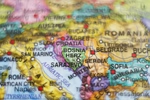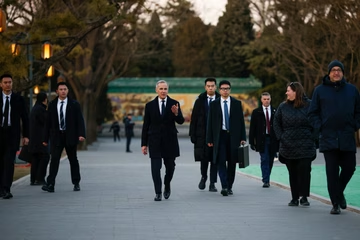
Bosnia and Herzegovina marks Statehood Day, 25 November, one of the most significant dates in the country's thousand-year history. This day commemorates the restoration of Bosnia’s statehood and the reaffirmation of a modern, sovereign, and indivisible homeland shared by all its citizens and peoples.
Statehood was restored on 25 November 1943, during the first session of the State Anti-Fascist Council for the National Liberation of Bosnia and Herzegovina (ZAVNOBiH) in Mrkonjic Grad. ZAVNOBiH, then the highest political, representative, and legislative body in the country, adopted a proclamation declaring the country as a unified and indivisible state. The session also saw the adoption of a resolution affirming the equality of all peoples and ensuring the rights of Bosnia as a federal unit within the Yugoslav federation.
The ZAVNOBiH resolution emphasized that Bosnia and Herzegovina belonged to all its peoples equally: Serbs, Croats, and the then Muslims (now called Bosniaks after reclaiming the name of the ethnic group). It declared the nation as a free and united state, guaranteeing equality and coexistence among its diverse communities. A delegation of 58 members was selected during the session to represent Bosnia at the Second Session of the Anti-Fascist Council for the National Liberation of Yugoslavia (AVNOJ), held later that month in Jajce, where ZAVNOBiH’s decisions were confirmed.
This session marked the formal restoration of Bosnia’s statehood after 480 years, following the fall of the medieval Bosnian state to the Ottoman Empire in 1463. Almost five decades later, the political structure established by ZAVNOBiH became the foundation for Bosnia’s recognition as a sovereign state in 1992.
Subsequent ZAVNOBiH sessions further consolidated Bosnia and Herzegovina’s statehood. During the second session in Sanski Most in 1944, ZAVNOBiH was formalized as the supreme legislative and executive body, affirming Bosnia and Herzegovina as a federal unit within Democratic Federal Yugoslavia. At this session, a Declaration on the Rights of All Citizens of Bosnia and Herzegovina was adopted, guaranteeing equality, freedoms, and a shared homeland for all its people. This document predated the United Nations Declaration of Human Rights by four years and mirrored many modern principles of the rule of law and human rights.
The third and final session of ZAVNOBiH took place in Sarajevo on 26 April 1945, after the city’s liberation during World War II. This session completed the formation of the federal state structure, establishing the Provisional National Assembly and enacting the Law on the People’s Government of Bosnia and Herzegovina.
The legacy and values of ZAVNOBiH remain highly relevant today as Bosnia, now a candidate for European Union membership seeks to undertake decisive reforms. The unity, determination, and vision demonstrated by its people during the Second World War continue to inspire the country’s journey toward building a prosperous and equitable state.
As in previous years, Statehood Day is being celebrated with various events commemorating Bosnia and Herzegovina’s anti-fascist heritage and European values. These activities highlight the importance of ZAVNOBiH’s legacy as a guiding principle for fostering pluralism, mutual understanding, and solidarity in overcoming challenges.
Divided Observances
While Statehood Day is a public holiday in the Federation of Bosnia and Herzegovina (FBiH) entity, it is not observed in the Republika Srpska (RS) entity. Bosnia lacks a unified state-level law on public holidays, with separate legislation in the two entities and the Brcko District. As a result, only New Year’s Day and International Labour Day (1 May) are celebrated nationwide.
The RS does not recognize 25 November as Statehood Day, arguing that Bosnia and Herzegovina was established on 21 November 1995, with the signing of the Dayton Peace Agreement, a date observed as a holiday in that entity.
In Banja Luka, the police have banned a planned public gathering organized by the City Organisation of the Social Democratic Party (SDP BiH) to mark Statehood Day. Despite such divisions, many citizens and leaders in Bosnia view the day as a reminder of the nation’s shared history and aspirations for a united and inclusive future.
Kakvo je tvoje mišljenje o ovome?
Učestvuj u diskusiji ili pročitaj komentare





 Srbija
Srbija
 Hrvatska
Hrvatska
 Slovenija
Slovenija



























































